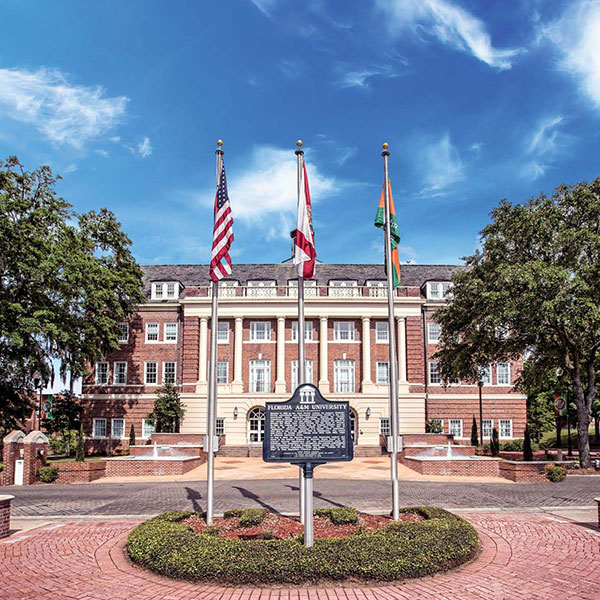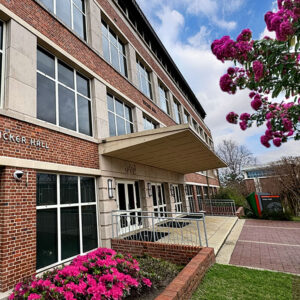Campus Life | January 18th, 2022
Florida College Students Wary of In-Person Instruction Amid Omicron Surge
By: Mia Uzzell

It has been three weeks since colleges under the State University of Florida resumed in-person instruction and Kyle Souter has already faced his worst fear: testing positive for COVID-19.
Souter, like many college students, was wary of returning to campus. Across the nation, governments and institutions have lessened COVID-19 protocols amid a surge in Omicron cases, joining a cavalier “return to normal” mindset.
“[Allowing us to return to campus] puts responsibility in the hands of students when we’re just barely adults,” said Souter, a junior music education student at Florida A&M University. According to the report on January 15 by the Centers for Disease Control and Prevention, Florida has become the third state to surpass five million COVID-19 cases.
Last fall in Tallahassee, Fla., FAMU and Florida State University both hosted their annual homecoming events — which many students criticized as superspreader gatherings. Souter worries that the city’s college party culture will persist despite the glaring spike. “Students are going to choose going to parties and congregating, which only leads to more spikes,” he said.
“Everyone isn’t going to [quarantine immediately.] They are going to first assume it is a common cold.”
When Souter was informed that he was exposed to the virus, he quarantined immediately, and luckily, his teachers allowed him to miss instruction even without a positive test at the time. Unfortunately, students reluctant to skip class may not follow this route of virus mitigation and other professors may not extend similar consideration.
“Everyone isn’t going to [quarantine immediately.] They are going to first assume it is a common cold,” the 21-year-old said, pointing to the Omicron variant’s milder side effects. “Unfortunately, later, they will find out they’ve been carriers.”
Jha’Lia Wray, a junior family and child sciences student at Florida State University, says there is a lack of social distancing enforced in her classrooms and an absence of masks on campus. “Students are coughing, sneezing, and clearly exhibiting signs of illness. They are constantly swarming campus without masks,” Wray said.
While masks were required at the start of the pandemic, as of Aug. 1, 2021, FSU announced that their campus would resume “normal, pre-pandemic operations.” The university’s website states that although their policies “cannot mandate vaccines, testing or mask wearing,” those mitigation efforts are encouraged.
Eliott Ford is an electrical engineering student at FAMU, studying within the FAMU-FSU College of Engineering. Last semester, his college required masks, but the protocol is no longer enforced this spring.
“You kind’ve have to tell people you feel uncomfortable and need some space because you don’t know where they’ve been.”
Ford anxiously faced resuming in-person instruction after winter break as students would be returning from their respective hometowns. For students that reside in FAMU’s University Housing, a negative Covid-19 test was required upon returning to the campus dorms. However, a negative Covid-19 test was not required for all students on campus.
On Dec. 21, 2021, FAMU’s president Dr. Robinson issued a letter to the university addressing concerns and outlining Covid-19 guidance. “We expect and encourage you to adhere to the safety practices of wearing masks, getting vaccinated and tested regularly, which can be done on our campus at our FAMU COVID-19 Testing and Vaccination site,” he stated.
Ford says students still returned to campus without much concern for public health in spite of this guidance. “More and more students are wearing less masks and being close to each other. You kind’ve have to tell people you feel uncomfortable and need some space because you don’t know where they’ve been,” he said.
Throughout the pandemic, mask-wearing has become a hotly politicized issue. Unfortunately, Ford has even encountered professors who attend class without a mask. “I had an experience recently with a professor who refused to wear a mask and did not care about social distancing. He just caught COVID-19,” he said. “That made me uneasy because granted, we are all adults, but you’re supposed to be looking out for students as well. If you don’t care about your own health, you don’t care about our health.”
Ford, like many students, unnervingly face a spring semester where they believe the responsibility of public health has become solely an individual concern. “Personally I don’t think my school would care if a spike happens. We’ve had spikes before and we’re still in-person,” Ford said. “I’ve had classes where more than eight people were sick with Covid-19 and we still were going in-person.”
Wray also believes universities unfortunately are prioritizing fiscal stability above all else. “In the case of rising COVID-19 cases, I believe my school will not put a stop to in person class meetings. Since the start of the pandemic, universities have taken a major hit in finances due to students being off campus and not utilizing campus resources.”
Souter, Wray and Ford hope that their universities will offer asynchronous learning as they’ve done before where students can choose if they want to attend lectures in-person or over Zoom. However, they all believe that won’t be the outcome this semester.






